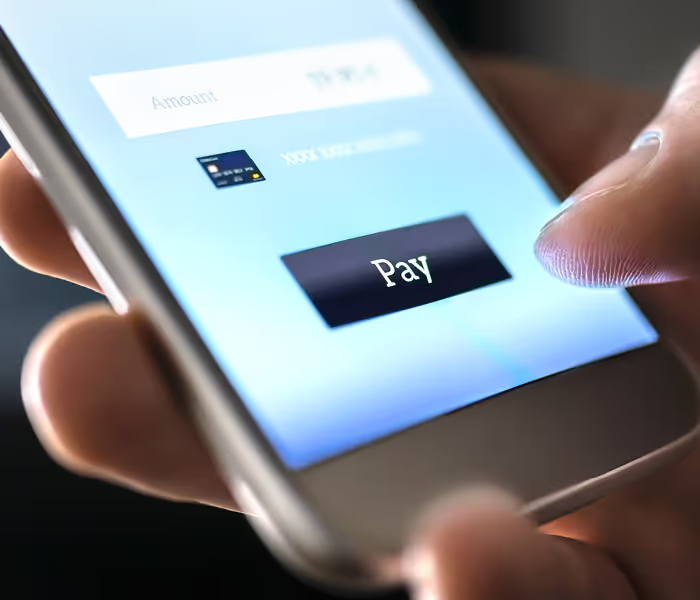B2C Payments
B2C payments are transactions where businesses pay customers or workers. They include incentives, refunds, insurance claims, legal settlements, and compensation.
Table of contents

What are B2C payments?
B2C payments are transactions in which businesses pay their customers or workforce.
Types of B2C transactions include:
- Incentives and rebates – Companies often use payments to entice customers to buy a product or motivate their employees and sales representatives to reach goals.
- Refunds – Refunds are common in many industries, from automotive finance to healthcare.
- Insurance claim payouts – Insurance companies must pay consumers for approved claims.
- Legal settlement payouts – In cases such as class action lawsuits, legal claims administrators must distribute settlement funds to claimants.
- Compensation – From paying traditional employees to compensating gig workers, contractors and seasonal staff, businesses need a payroll solution as flexible as today's modern workforce.
What is the difference between B2B & B2C payments?
Business to business (B2B) payments are transactions made between businesses, whereas B2C payments are between businesses and their customers or workforce. These two types of transactions may differ in several ways:
- Reason for payment – B2B payments typically occur when one company pays another for goods and services. B2C payments can occur for various reasons, such as when businesses owe refunds or claim settlement payouts to their customers.
- Preferred payment methods – B2B payments are often made via more traditional payment methods, such as paper checks and wire transfers. 81% of U.S. businesses use checks at least sometimes when paying other firms. While checks remain a popular way to pay consumers, too, the adoption of digital payment methods has accelerated in recent years. According to the Onbe + NRG 2024 Payouts Landscape report, 92% of consumers reported preferring at least one digital or electronic payment method.
- Complexity – B2B payments may be larger in size and involve more complex invoicing processes, payment terms and conditions. No wonder it takes businesses approximately ten days to process an invoice, and B2B enterprises wait an average of more than 40 days to receive a payment. In contrast, it may be simpler and easier to pay consumers and workforces quickly—particularly with the availability of same day B2C payment methods and automated solutions.
While B2B and B2C payments are made to different audiences and for different reasons, both types of transaction are undergoing a digital evolution. Today, organizations have options for modernizing their payment processes to reduce the cost, complexity and risk of paying their most important stakeholders—from business partners and service providers to customers and employees.
What is the difference between B2C & C2B payments?
It’s easy to keep these terms straight by remembering where the transaction originates and to whom it’s going. When a consumer pays a business for goods or services—or authorizes a recurring direct payment, such as for a monthly bill—they are making a consumer-to-business (C2B) payment. When a company pays a consumer—such as for a refund, incentive or insurance claim settlement—that’s known as a business-to-consumer (B2C) payment.
What is the meaning of B2C in banking?
B2C banking refers to financial products and services provided by banks or financial institutions directly to consumers. Examples include checking, savings and investment accounts, credit and debit cards, and personal loans. Features of B2C banking often encompass digital banking services, customer support, financial education, and other tools and services to help consumers make informed choices and reach their financial goals.
What challenges do businesses face when making B2C payments?
While companies that serve consumers typically have robust solutions in place for accepting payments, many are behind on modernizing the B2C payment process. As a result, businesses could face some of the following challenges, which can be addressed by switching to a digital payout solution:
- High costs – Checks can cost as much as $12 each when all costs are factored in, including paper, postage and administrative labor. Digital and electronic payments are a fraction of the cost of checks and offer greater convenience for businesses and recipients.
- Compliance risk – Businesses are subject to stringent regulations when making certain kinds of payments to consumers. Additionally, escheatment—reporting unclaimed money to the state—is a complex and labor-intensive process, and getting it wrong may lead to steep fines. Companies can reduce risk by working with payment experts and offloading the escheatment burden.
- Payment fraud – Checks are the payment method most vulnerable to fraud, according to the Association for Financial Professionals (AFP); 65% of respondents said their organization had faced check fraud. Digital payment solutions offer a more secure way to pay consumers and workers.
- Recipient inconvenience – In a recent Onbe survey exploring customer preferences for automotive finance refunds, 53% of respondents said they have opted not to deposit a refund check because the amount was too small to be worth the trouble. Switching to digital payments provides an instant, seamless experience regardless of the size of the payment.
- Missed opportunities – Check-based payments offer limited options for branding, marketing and gathering data on consumer preferences. A digital payment system enables brands to turn payouts into opportunities to understand and engage with their customers.
Choosing the right B2C payout solution
Selecting a B2C payment system is a critical decision for your business and customers. Consider the following factors when evaluating vendors and solutions:
- B2C payment methods – Ensure the solution supports popular payment methods, including physical and virtual cards, ACH payments, direct deposit, digital wallets (e.g., Apple Pay), and alternative payment methods relevant to your target market, such as PayPal.
- Global payment capabilities – Verify that the payout solution supports cross-border payments in the geographic areas and currencies your customers or workers need.
- Integration options – Evaluate how easily the payment platform or solution integrates with your existing systems, such as your CRM (Customer Relationship Management) system or accounting software.
- Security and compliance – Ensure the payout solution adheres to industry standards and regulations for data security (e.g., PCI DSS compliance for handling card data) and financial regulations (e.g., AML/KYC requirements). Learn more about Onbe’s security and compliance capabilities.
Ready to learn more about Onbe’s B2C payout solutions? Chat with one of our payments experts.
FAQs
Suggested Topics
Talk to a payment expert
Ready to learn more? Let's connect to discuss our payout options.










